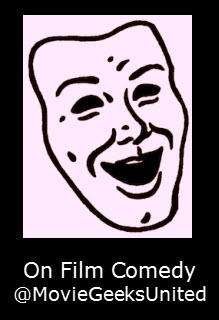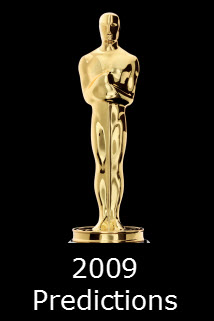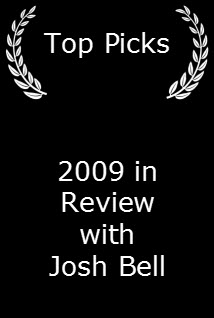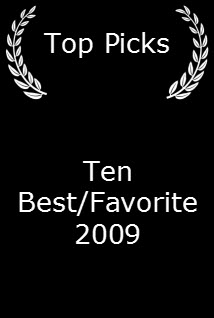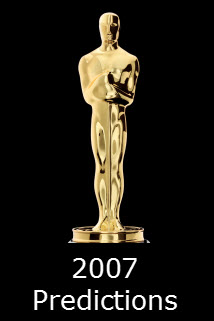True Grit (2010)


Content by Tony Macklin. Originally published on December 11, 2010 @ tonymacklin.net.
The Dude ain't no Duke.
In the Coen Brothers' True Grit, Jeff Bridges portrays Rooster Cogburn -- a role for which John Wayne won his sole acting Oscar for his performance in 1969.
I knew Duke Wayne [no one who knew him called him "John"] -- and Jeff Bridges, you're no Duke Wayne.
Why would Bridges try to shoot over the iconic girth of John Wayne?
Duke is mythic; Bridges is more cultist. What makes the attempted usurpation even more peculiar is that this year Bridges won the Academy Award for Best Actor for Crazy Heart.
Bridges' career has plenty of glitter. One of my favorite films is The Fabulous Baker Boys (1989), with Jeff's older brother Beau and the dazzling Michelle Pfeiffer. I'm also a fan of Bob Rafelson's Stay Hungry (1976). And anyone who earned his spurs in a swimming pool with nubile Cybill Shepherd has my eternal admiration.
But why Rooster? What's next? Is Bridges going to reprise Bogey's Oscar-winning role of Charlie Allnut in a Coen Brothers' version of The African Queen?
Or is George Clooney -- a Coen Brothers' favorite -- going to reprise Orson Welles' Charles Foster Kane in a Coen version of Citizen Kane? [Unfortunately, up to now, Clooney has never gotten an Oscar nomination for his work with the Coens.]
When the Coens dip into the past and compete with a former actor's achievement, it's not really their forte. Their having Tom Hanks take the Alec Guinness role in The Ladykillers (2004) was pretty much of a botch job.
The Coens are at their best when they're creative -- when their creativity trumps their self-indulgence: Raising Arizona (1987), Fargo (1996), Barton Fink (1991), No Country for Old Men (2007). The Big Lebowski (1998) is in a country all its own.
True Grit is a good effort, but it's a diversion of their talents.
Why did they make it? They say they wanted to go back to the book written by Charles Portis, although they also say that in their preparation they didn't watch the Henry Hathaway-directed version of 1969. But we know the Coens sometimes stretch the "truth."
Going back to the book has some validity since Portis has been considered a precursor of Cormac McCarthy, the writer of the novel No Country for Old Men, which the Coens adapted into a movie that won the Academy Award for Best Picture of the Year for 2007.
Portis' novel is a strong piece of writing -- narrated by Mattie Ross. She tells the story, set in Arkansas and Oklahoma, of her hiring Marshall Reuben Rooster Cogburn to avenge the murder of her father by hunting down the killer Tom Chambers.
Rooster, Mattie, and a young Texas Ranger named LaBoeuf go after Chambers, who has joined up with Ned Pepper's gang. Pepper and Rooster are old adversaries.
The story is framed -- as is the Coen Brothers' version -- by Mattie as a 14-year-old girl and ending with her as an old woman.
The Coens Brothers' movie begins with a quote from Proverbs -- "The wicked flee when none pursueth" -- which ends the first chapter in the book.
The book's dialogue is more credible than the movie's. Even though the Coens use some of Portis's dialogue, the movie's verbiage at times is strained, high falutin' and has some of the floridity they promoted in The Ladykillers. And the rapid-fire delivery adds a further artificiality to it.
What is most surprising and disconcerting is that the Coens Brothers' supposed allegiance to the book is sporadic at best. They make a bunch of their own changes -- some ill-conceived.
In their movie one brave character is shot -- he does not die a natural death under duress as in the book. It's a bad change.
A major character also is killed in a different way by a different character than in the book. If Portis had wanted that, he probably would have written it differently.
And Mattie's standing up to racism in the book is cut. The Coens instead indulge in a cheap joke about race.
The Coens also cut out context -- e.g., when Mattie insults Frank James in the movie it has no meaning as it did in the book. And I missed Portis' good line about Fort Smith, Arkansas, when a character says, "They told me this town would be the Pittsburgh of the Southwest."
I also missed Rooster's cat General Sterling Price who stands out in the book. I don't think the Coens much like animals. And the scene in which Rooster shoots a rat is dropped. One might think that would appeal to the Coens Brothers' quirky sensibility.
The Coens also abolish sickness from the Old West.
Obviously the Coens selected Jeff Bridges because he was closer in age to the 40-something Rooster in the book. Wayne was 62 when he was awarded the Oscar. Bridges is 61. See, he's younger.
Bridges -- with his mouth full of marbles -- growls and mumbles as Rooster-revisited.
Hailee Steinfeld gives a nondescript performance as Mattie Ross. Granted she is saddled with dialogue no young actress should have to endure. Like Kim Darby before her she's basically a tv-actress, and may well be a one movie wonder. Ms. Darby went on to be married five times -- now, that's "true grit."
Matt Damon is the semi-dandy Texas Ranger LaBoeuf. He wanders in and out of the movie speaking arch dialogue. Josh Brolin and Barry Pepper have personality as Tom Chambers and Ned Pepper.
The best quality about the new True Grit is that we are gifted with the masterly, evocative cinematography of Roger Deakins, who is one of the most deserving people in the movie industry who hasn't yet won an Oscar.
Jeff, your brother Beau is calling. He wants to do a "new" version of Sea Hunt.
The following addendum was published on December 19, 2010.
Since many of you readers want me to be boiled in oil for this review -- obscene oil for some -- please let me clarify several points, as I go under.
First of all, my thesis was not that the movie is worthless. My main point is that I think Jeff Bridges and the Coen Brothers should have done something other than a another version of True Grit. They're very talented at their best -- I think No Country for Old Men is one of the best films of the decade. I wish they had been as creative as they were in that. True Grit seems to be treading western water.
Secondly, I don't hate the Coen Brothers' True Grit, although some readers surely seem to hate me. In fact, I called the movie a "worthy effort." Most readers totally missed that. I'm a fan of cinematographer Roger Deakins, who did the cinematography. [Deakins has been nominated for an Academy Award 8 times, but never won. To me, that's not right. He has long deserved one.] I loved his cinematography in True Grit.
When I sent in my review to rottentomatoes, I had the movie rated "fresh." They thought it was basically a negative review and changed the rating to "rotten." My webmaster and my wife agree with rottentomatoes.
One of the main things that bothered me about the Coen Brothers' saying they were going back to the novel was the changes they made. They had Rooster Cogburn shoot Little Blackie instead of his dying of exhaustion as in the novel. That changes the sense of his bravery. In the book Mattie says, "There never lived a nobler pony." The Coens blow him away.
Several other changes didn't seem to support their allegiance to the novel. And they didn't seem productive on their own.
I probably shouldn't have mentioned that I knew Duke Wayne. I was only trying to establish my credibility, and play off the opening line.
Sometimes a critic likes a line too much -- I liked "The Dude Ain't No Duke." I don't know whether any one pointed out the double negative, but I went with it anyway because I got a kick out of it.
What's a critic to do when he thinks for himself? I guess I should remake my reviews.




